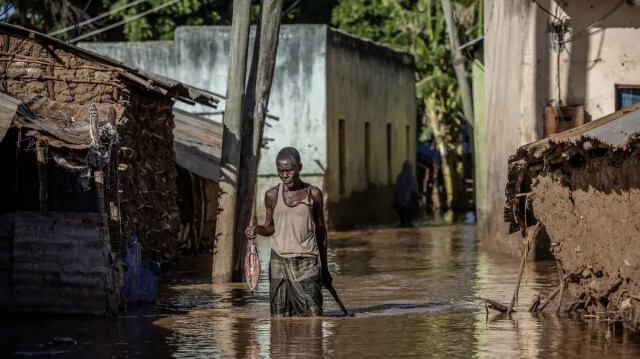
Poor people will be exposed to drought, floods and extreme heat in Africa, says World Meteorological Organization
Nearly 118 million people in Africa will be exposed to severe climate change by 2030 if appropriate measures are not taken, according to a report by the World Meteorological Organization (WMO) released on Monday.
“By 2030, it is estimated that up to 118 million extremely poor people (living on less than US$ 1.90 per day) will be exposed to drought, floods and extreme heat in Africa, if adequate response measures are not put in place,” according to the State of the Climate in Africa 2023 report.
The report underscored the urgent need for increased investment in climate adaptation and resilience-building initiatives to mitigate the impacts of climate change on the continent.
African nations are losing an average of 2–5% of their Gross Domestic Product (GDP) annually and many are diverting up to 9% of their budgets responding to climate extremes.
In sub-Saharan Africa alone, the cost of adaptation is projected to reach between $30–50 billion annually over the next decade, amounting to 2–3% of the region's GDP.
The report underlined that this would place immense pressure on poverty alleviation efforts and severely hinder economic growth across the continent.
"Africa has observed a warming trend over the past 60 years that has become more rapid than the global average," WMO Secretary-General Celeste Saulo said in a statement.
Celeste added that the continent experienced deadly heat waves, heavy rains, floods, tropical cyclones, and prolonged droughts in 2023.
The year 2023 has been confirmed as the warmest on record and brought devastating climate events to various parts of Africa.
While countries in the Horn of Africa, southern Africa, and North-West Africa battled with prolonged, multi-year droughts, other regions suffered from extreme precipitation leading to catastrophic flooding. These climate extremes have had severe consequences, causing loss of life, widespread displacement, and significant economic damage.
"This pattern of extreme weather has continued in 2024," Saulo added. "Parts of southern Africa have been gripped by damaging drought, and exceptional seasonal rainfall has caused death and devastation in East African countries, most recently in Sudan and South Sudan, exacerbating an already desperate humanitarian crisis."

